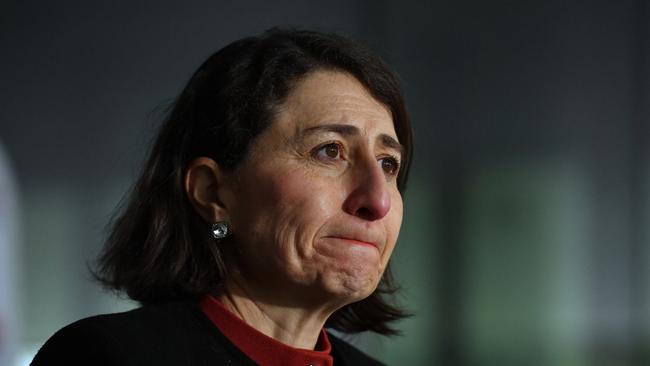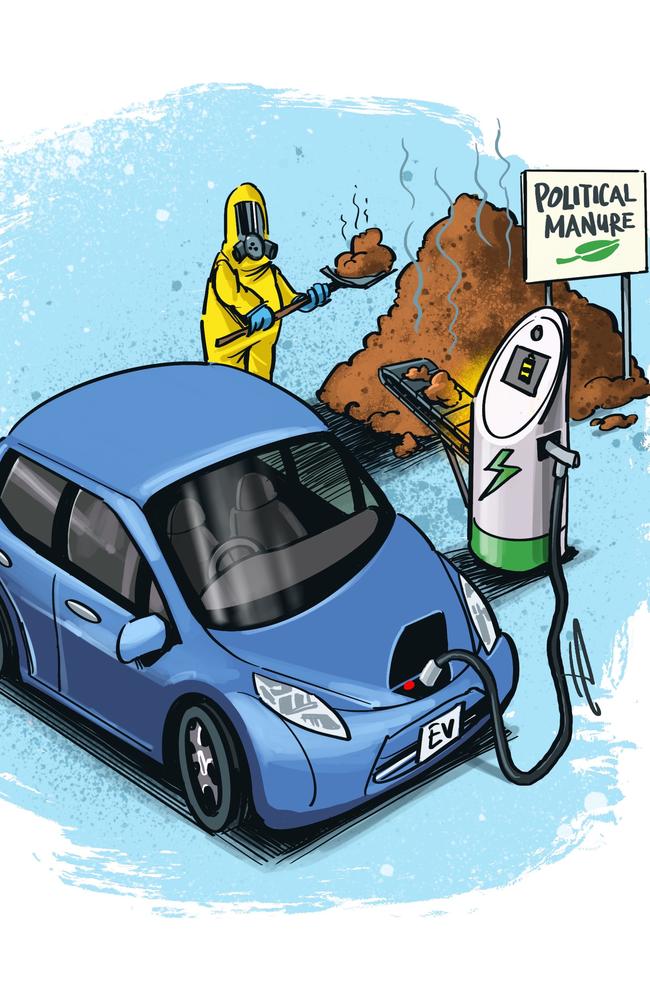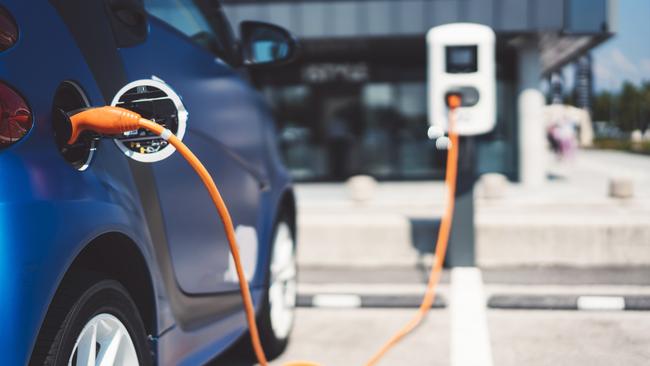What are politicians not telling us about issues like Covid, climate change?
Overlooking facts and failing to have proper conversations about issues like Covid is causing consternation, writes Alan Jones.
Opinion
Don't miss out on the headlines from Opinion. Followed categories will be added to My News.
In the extraordinary mess that we are in, the confusion, chaos and disproportionate responses have generated a dangerous level of anger.
Anger in relation to lockdowns, which border on what could be loosely called a political amateur hour; a whole construction industry banned with no evidence to justify it; a Premier telling everyone to stay at home, only go out for essential shopping and you must wear a mask, but she can take a coffee, mask-less, and the rules don’t apply to her.
Last weekend, approximately 255,000 tests were conducted in Greater Sydney, 314 were positive, 0.13 per cent; or, put another way, 99.87 per cent were negative, but half the nation is closed down; and the NSW Premier says: “We can’t live freely and safely until the outbreak is quashed.”

Gladys Berejiklian has forfeited the right to be believed.
There is no scientific proof offered for anything that these health officers and politicians demand of us.
Of those tested positive, why aren’t we told how old they are? Why aren’t we told their comorbidities? Why aren’t we told how many are obese?
In 2017, there were 1255 deaths from influenza in Australia, not an eyelid was batted. In 18 months, we have had 914 deaths from coronavirus.
Approximately 470 people die everyday in Australia.
The world health figures tell us, every day, that well over 99 per cent of all cases are mild.
I say this because we have been down this alarmist track before, being force-fed information from “experts” and “politicians” with virtually no evidence to justify their alarmist talk.
I well remember the widely acclaimed Stanford University biologist, Dr Paul Ehrlich, telling us in 1967, “it’s already too late for the world to avoid a long period of famine … the time of famine is upon us and will be at its worst, and most disastrous, by 1975.”
Today’s alarmism is not new, but why are the alarmists given a platform?
In 1976, famine was again the alarmists’ cloak. A “climatologist” at the National Center for Atmospheric Research in Colorado warned that the world food reserves, in 1976, would not protect the world from famine; that we were facing “the most abnormal period in 1000 years”.
Remember in March 1998, “scientists” declared that a 2km wide asteroid called 997XF11 was on a near collision course with the earth.

We later found that the asteroid missed the earth by at least a million kilometres.
We should be very careful with what we are being force-fed.
Only four days ago, New Zealand Prime Minister Jacinda Ardern urged New Zealanders to “take all non-Government information with a grain of salt … dismiss anything else. We will continue to be your single source of truth.”
The United States President is now telling big tech to get onside with government and censor voices the government doesn’t like.
In reality, this is a crackdown on the free exchange of ideas.
We are in deep trouble when the leader of the world’s democracies, America, is instructing private companies to abridge the freedom of speech and of the press to the point where big private companies act as functionaries of Government.
The journalist Glenn Greenwald, who helped publish the whistle-blower Edward Snowden’s surveillance abuse in 2013, called the union of corporate and state power “one of the
hallmarks of fascism”.

Make no mistake, we are living in a world where, on climate change and coronavirus, to name the two most recent examples, there is a government line over which you dare not step.
Into this miasma of public non-debate we now have the issue of electric cars.
Presumably, we are meant to accept what is force-fed to us about what electric vehicles can do to reach net-zero emissions by 2050.
I note the argument that no new petrol or diesel vehicles should be sold after 2035.
Presumably, argue against that and you’ll be cancelled as well.
Only some people are allowed to be right, notwithstanding the fact that globally, fewer than 0.3 per cent of all cars are pure electric; and given the price tag, they are often playthings
for rich people.
Will there be sensible and informed debate on electric cars? I suspect not in this climate.
Certainly, driving electric vehicles will result in no carbon dioxide emissions.
But, in most parts of the world, the electric vehicle is powered by energy, largely produced by fossil fuels.
As Bjorn Lomborg, president of the Copenhagen Consensus and visiting fellow at the Hoover Institution, Stanford University, told me recently: “A new study from the International Energy Agency shows that an electric car, with a 400km range and charged with electricity, produced at the global average, will have to be driven 60,000km just to pay off its higher carbon dioxide emissions in production.”
What increasingly has to be asked, in relation to all these issues, whether it be climate change, coronavirus, masks, lockdowns or electric vehicles, what aren’t we being told?
Why would the International Energy Agency director Fatih Birol say: “If you think you can save the climate with electric cars, you’re completely wrong.”
In the lead-up to the last federal election, the Labor Party blandly announced that 50 per cent of all new cars would be electric by 2030, up from the current level of fewer than one per cent.
Josh Frydenberg got into the act, offering $100 million of your money to help people buy electric cars.
Yet the International Energy Agency has estimated that each electric car on the road has cost US$24,000 in subsidies, research and development and extra infrastructure investment; and only last year, the Dutch Court of Auditors ruled that the Netherlands was wasting taxpayers’ money on electric vehicle subsidies, calling them “an expensive joke”.
I think Lomborg sums it up best: “Today, electric cars are simply expensive gadgets, heavily subsidised for the wealthy to feel good, while doing very little for the planet.”
Well may we ask where all of this ends?
Are we living in a world where opinions, and indeed fact, uncomfortable to big government, big tech and, yes, big pharma, are being silenced because their edicts must be obeyed?
How much longer must we be taken on this ride?
Sadly, we have been around this track before, but we don’t seem to have learnt from past experience.
The credibility of politicians is being eroded every day.
Matt best sums it up, writing to me from Townsville: “I have come to the conclusion that if a politician ever tells me to do something for my own wellbeing, I should run the other way.”



